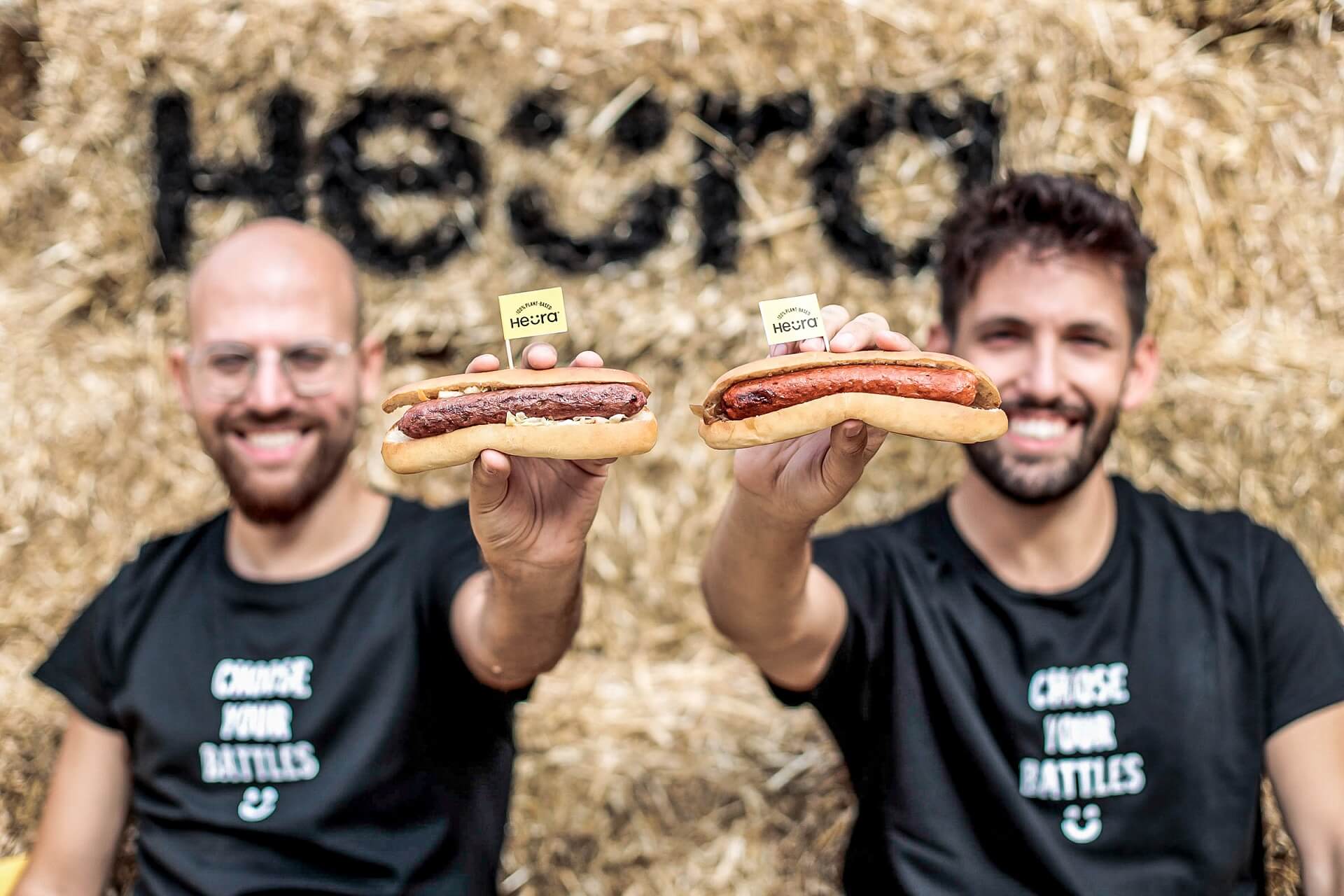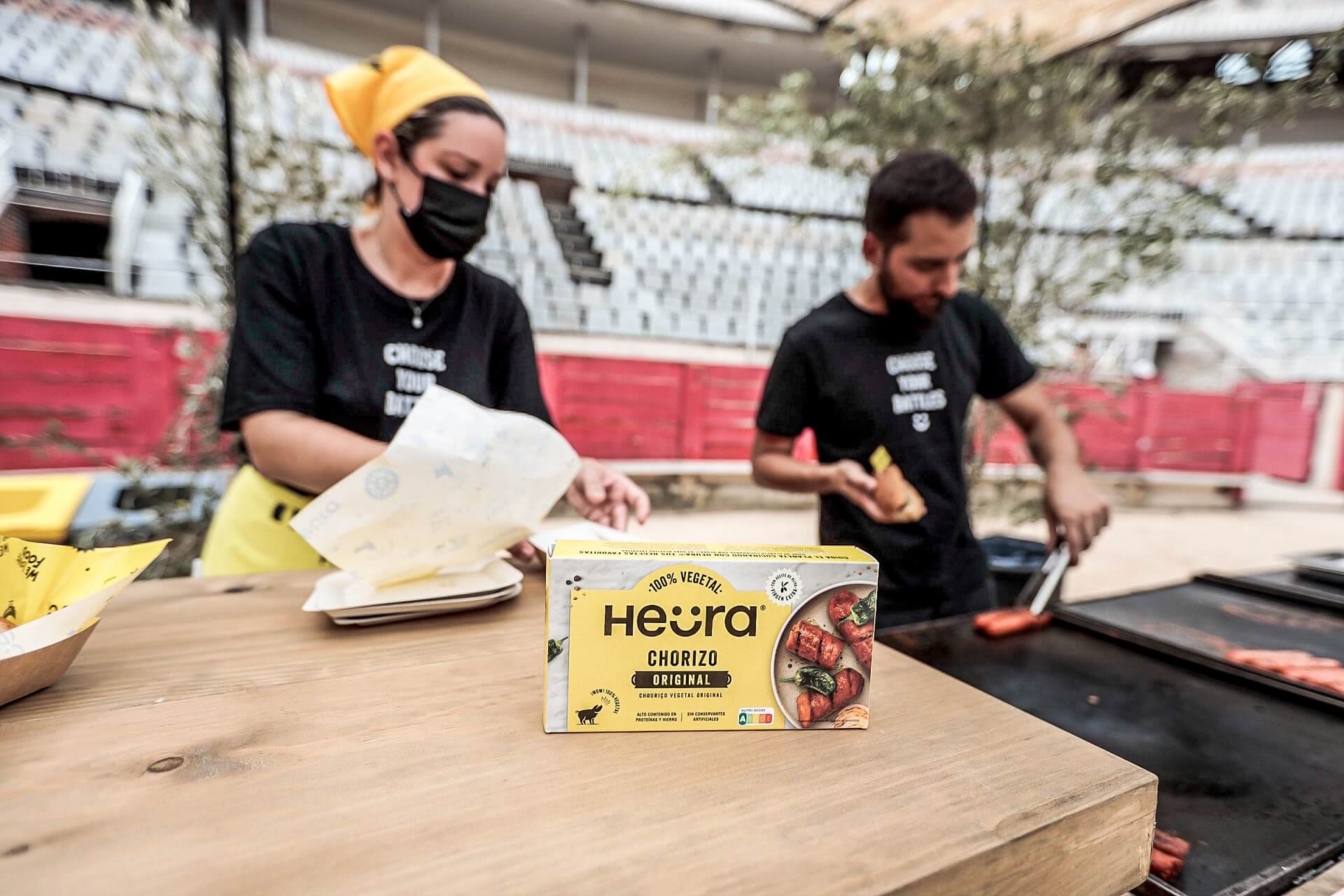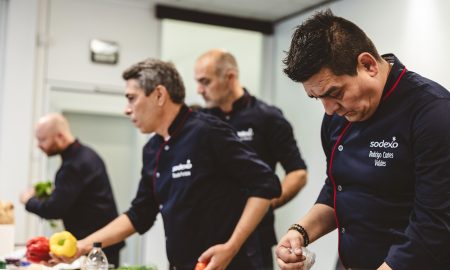There was a shock announcement in October 2021 that shares in pioneer substitute meat company, Beyond Meat, had fallen by 12% in September, representing a 60% fall since a peak in January. This was a reaction to a shortfall in estimated revenue of about 30%. The company blamed lower retail orders as one of the reasons for the shortfall, which prompted speculation that the plant-based meat sector is a waning fad.

Beyond Meat Rohlinge / Image: Beyond Meat
However, trend reports all over the world indicate that the appetite for plant-based meat substitutes is set to increase. According to a recent Euromonitor report Trends Shaping the Future of the Food and Nutrition Industry plant-based eating and alternative proteins is one of the key themes driving the most disruption and investment in the food and nutrition space.

Image: Heura
The report found one in five (23%) of consumers globally now report that they are trying to limit their meat intake and 16% say they are trying to follow a plant-based diet. Health reasons are the largest motivational factors for consumer decisions with almost two fifths (37%) of those who eat processed plant-based meat alternatives say they do so to feel healthier. Environmental concern is also important (21%), as is animal welfare (19%).
Sustainable, healthy
At the recent COP26, the 2021 United Nations Climate Change Conference in Glasgow, UK, Bernat Añaños Martinez co-founder and chief marketing officer of Barcelona-based substitute meat company Heura made an impassioned speech during a panel discussion. He decried organizers for not centralizing meat consumption in the debate.

Image: Heura
Heura, which was set up in 2017, recently expanded into the Mexican market, offering its 100% plant-based products in Walmart, City Market, Fresko and La Comer. Shani Wright, head of global media relations for Heura, explained that they want to allow Mexicans to make and eat the traditional dishes that they love but ways that are more sustainable and healthier. Also, it would be a major coup if they could convince Mexico’s population of 130 million to get on board with the plant-based movement.
Alex Pirla, a vegan chef with 20-years of experience and author of Vegan Gourmet is head of Heura’s culinary department. He advocates all food that contributes to a cleaner and healthier planet. “The fat used in Heura products is 100% olive oil,” he says. “We are all about clean labels, so we have 40% fewer ingredients in our products compared to other substitute meat companies. Our ‘chicken’ is 18% protein per 100g.”
Sieh dir diesen Beitrag auf Instagram an
Apart from plant-based meat substitutes there is a lot of interest in the growing of meat in the lab from animal cells. In December 2020, the first cell-cultured meat approved for human consumption went on sale in Singapore. Governments around the world are following Singapore’s example in seeing lab-grown protein as potentially vital to greenhouse gas-reduction strategies and food security goals.

Image: HQUALITY | Adobe Stock Picture
This September Academy-award-winning actor, and vocal environmentalist, Leonardo DiCaprio announced he was investing in Aleph Farms and Mosa Meat, two leading companies in the emerging cultivated meat field.
“One of the most impactful ways to combat the climate crisis is to transform our food system,” he said. “Mosa Meat and Aleph Farms offer new ways to satisfy the world’s demand for beef, while solving some of the most pressing issues of current industrial beef production. I’m very pleased to join them as an advisor and investor, as they prepare to introduce cultivated beef to consumers.”
Meat consumption across the globe is projected to grow by 40-70% in the next 30 years. Cultivated meat could be a way of feeding this demand without the dire environmental impact of conventional beef production.
According to an independent Life Cycle Analysis study, cultivated beef production could potentially reduce climate impact by 92%, air pollution by 93%, use 95% less land, and 78% less water when compared to industrial beef production.
The process of growing meat in sterile laboratory conditions also reduces the risk of pathogens and contaminants causing food-borne illnesses. It also cuts down on the use of antibiotics, which are heavily used in industrial farming.

Image: AdobeStock | aprilante
A greener future
Despite the shock readjustment of the Beyond Meat share price the substitute meat market looks to be a major growth area in the years to come. With the COP26 summit bringing environmental issues into the limelight, it has focused minds on the environmental impact of farming meat across the globe and consumers are becoming more conscious of the true cost to the planet of what they eat.

Image: Heura
There’s a growing acceptance that a plant-based diet could help. The marked rise in the number of people swapping to plant-based food demonstrates the scale of the global dietary shift. And with food businesses such as Heura, Mosa Meat and Aleph Farms, to name but a fraction, finding innovative solutions to some of our biggest challenges and producing delicious meat replacements it will continue to trend.
Sieh dir diesen Beitrag auf Instagram an
Bryony Tinn-Disbury is co-founder and CEO of Jack and Bry, an up-and-coming food-tech business using jackfruit to create plant-based meat alternatives. The company recently won a 2021 Great Taste Award for its jackfruit burger. Her outlook for the sector is optimistic. “The rise in the number of people swapping to plant-based food and drink demonstrates the scale of the global dietary shift,” she said.

Image: Beyond Meat
“Research from the University of Oxford found that cutting meat and dairy from your diet can reduce your carbon footprint from food by up to 73%, so this change in consumer habits will make a huge difference to our planet. Combined with action from businesses to create vegan alternatives for consumers and policy changes within governments, this will set us on a trajectory for a greener future.”
















Pingback: Top ten foodservice trends for 2022 | KTCHNrebel